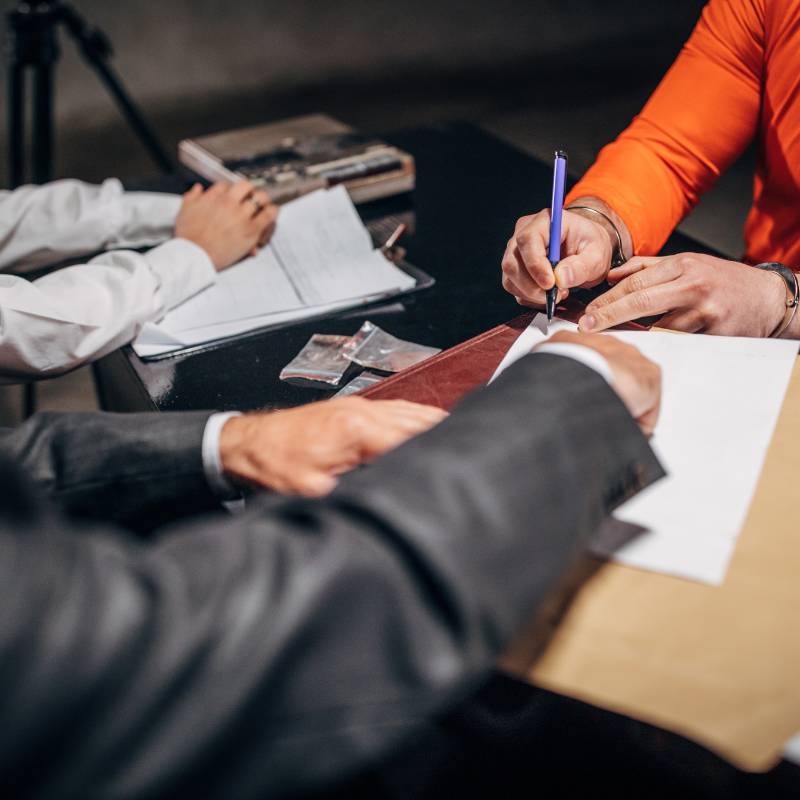
Filing a criminal complaint is an essential first step in the legal process if you’ve been a victim of or witnessed a crime. It officially notifies law enforcement, allowing them to investigate and take action. Whether you’re reporting a crime as a victim, witness, or concerned individual, understanding the process is key. This guide explains how to file a criminal complaint and how a criminal lawyer can help at each stage.

Before you file a criminal complaint, you need to ensure that the incident you’re reporting qualifies as a criminal offense under the law. A criminal lawyer can help clarify whether the situation you’re reporting is actionable under criminal law. Common crimes that are often reported through criminal complaints include:
If you’re unsure whether the incident qualifies as a crime, contacting a criminal lawyer for guidance can help you make an informed decision.
Before you file your criminal complaint, it’s essential to gather all pertinent details and evidence to support your claims. A criminal lawyer can advise you on the types of information that may be needed. Here’s what you’ll typically need:
Having well-organized and comprehensive information will help law enforcement proceed with the investigation more effectively.
Once you’ve gathered the necessary information, you should reach out to the appropriate law enforcement agency. Depending on the nature of the crime, this could be your local police department, sheriff’s office, or even federal agencies like the FBI for more serious offenses. If you’re unsure where to file the complaint, a criminal lawyer can help direct you to the correct agency.
You can often file a criminal complaint:
When you contact law enforcement, you’ll likely need to fill out a criminal complaint form. This form requires you to provide a detailed account of the incident. It may ask for:
A criminal lawyer can help you ensure the complaint is accurately filled out and that it includes all the necessary details to strengthen your case.
After completing the form, you’ll need to submit it to the appropriate law enforcement agency. Be sure to keep a copy of the complaint and any related paperwork for your records. A criminal lawyer may assist you in tracking the status of the complaint and ensure that it’s properly submitted to the relevant authorities.
Once you’ve submitted your complaint, law enforcement will review the information and decide whether there is enough evidence to pursue an investigation. They may contact you for more details or clarification. If the investigation progresses and charges are filed, you may be asked to testify or provide additional evidence.
In some cases, a criminal lawyer can help you follow up with authorities, ensuring the investigation moves forward and your rights are protected throughout the process.
If you’re the victim of the crime, or if you are filing a criminal complaint as part of a larger legal strategy, it’s wise to consult a criminal lawyer. A criminal lawyer can guide you through the entire legal process, offer legal advice, and represent you in the case if it progresses to a courtroom trial.
In addition, if you’ve been wrongfully accused, a criminal lawyer can help protect your rights and ensure your side of the story is heard during the investigation and trial.
Filing a criminal complaint is a critical step in the pursuit of justice. By following the steps outlined above, you can properly report the crime and begin the process of legal action. If you’re unsure about how to proceed or if you need assistance with filing your complaint, consulting a criminal lawyer can provide you with the expert legal advice you need.
A criminal lawyer will help ensure that your complaint is filed correctly and will protect your interests throughout the investigation. If you or someone you know is in need of assistance, don’t hesitate to reach out to a qualified criminal lawyer for support.
Facing serious criminal charges can be one of the most stressful and life-altering experiences. The consequences of a conviction could include hefty fines, a criminal record, and even jail time. A skilled criminal lawyer is crucial to defending your rights and minimizing the impact of the charges. Here’s how a criminal lawyer can help defend you against serious criminal charges.
One of the first steps a criminal lawyer will take is to thoroughly review the evidence against you. They will scrutinize all available materials, such as police reports, witness statements, and physical evidence. By identifying flaws or inconsistencies, your lawyer can often challenge the prosecution’s case. A detailed review can uncover critical factors that could lead to the dismissal of charges or a favorable plea agreement.
Every criminal case is unique, and a criminal lawyer will tailor a defense strategy to your specific situation. This could involve:
A criminal lawyer ensures that your rights are protected throughout the legal process. This includes ensuring that you are not subjected to unlawful searches or interrogations, and that your right to remain silent is respected. By upholding these protections, your lawyer can prevent unfair or coercive tactics from being used against you.
In many cases, criminal defense lawyers can negotiate with the prosecution to reduce the charges or penalties. For example, if you are facing a severe charge, your lawyer may be able to negotiate a lesser charge or a more favorable sentence, such as probation instead of jail time. Experienced criminal lawyers know how to negotiate effectively with prosecutors and work toward the best possible outcome for their clients.
If your case goes to trial, a criminal lawyer will represent you in court and advocate on your behalf. They will cross-examine witnesses, challenge evidence, and present your defense in the most compelling way possible. An experienced lawyer knows how to frame the narrative to the jury and judge, presenting the facts in a way that highlights reasonable doubt and supports your case.
Throughout the process, your criminal lawyer will provide expert advice, helping you understand the legal system and your options at each stage. Whether you are deciding whether to accept a plea offer or preparing for trial, having a lawyer who can guide you through these decisions is invaluable.
Even if you are convicted, a criminal lawyer can help minimize the impact by advocating for the most lenient sentencing possible. Your lawyer can present mitigating factors such as a clean criminal record, remorse, or personal circumstances that may lead the judge to impose a lighter sentence.
A serious criminal charge can change your life forever, but a skilled criminal lawyer can make a significant difference in the outcome of your case. From analyzing evidence and building a solid defense strategy to protecting your rights and negotiating with prosecutors, a criminal lawyer works tirelessly to defend you against serious charges. If you’re facing criminal accusations, don’t hesitate to contact a qualified criminal lawyer who can provide the guidance and representation you need.
Our attorneys specialize in criminal law and have a proven track record in handling complex cases.
From complaint filing to courtroom representation, we cover every legal aspect.
We prioritize our clients’ rights and work towards achieving the best possible outcome.
All consultations and legal proceedings are handled with the utmost confidentiality.
We offer competitive pricing with no hidden costs.
If you need assistance with a criminal complaint, whether as a victim or a defendant, our expert legal team is here to help. Contact us today for a consultation and let us guide you through the legal process with confidence.
“Ahmed Ali Dewan & Co. is a trusted law firm specializing in intellectual property, criminal law, family law, and corporate law. We provide expert legal services tailored to your needs, offering professional guidance in complex legal matters. Contact us today”